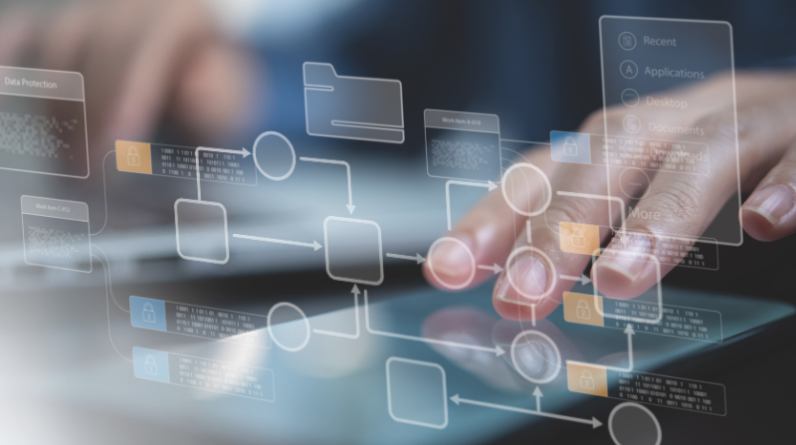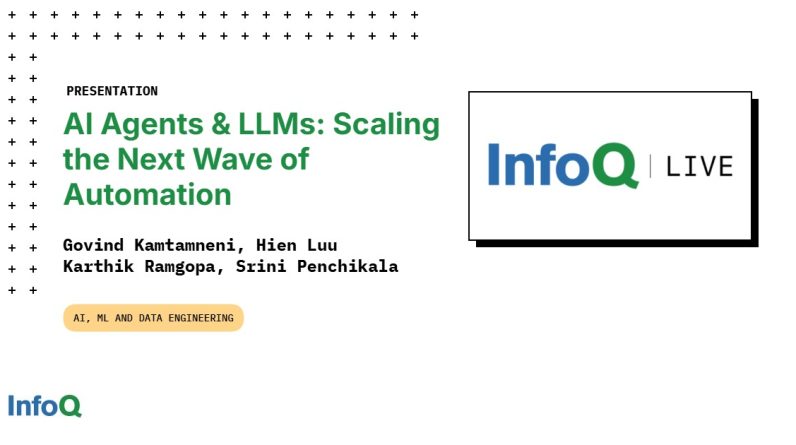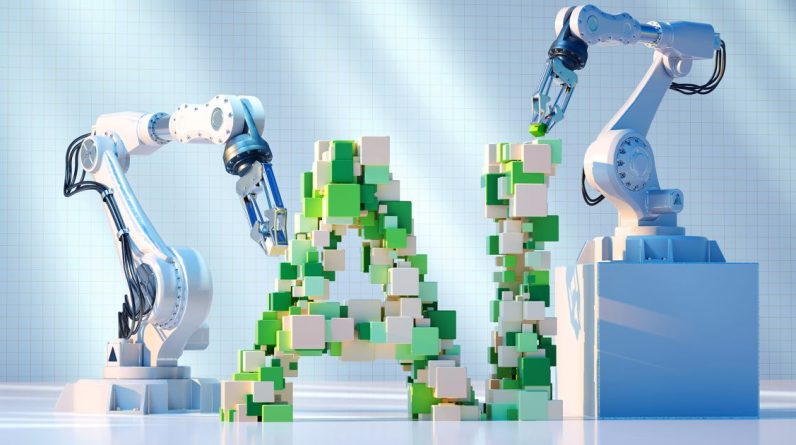Artificial intelligence (AI) has been rapidly advancing, bringing forth numerous benefits and opportunities. However, alongside its progression, there is a growing concern about the impact it may have on human employment. A recent survey by the International Monetary Fund (IMF) reveals that nearly half of all jobs worldwide could be affected by AI. This impending reality calls for proactive measures.
While some may view this development with apprehension, experts argue that preparing for a future where humans may no longer be necessary is crucial. As technology entrepreneur Asa Cox suggests, the pace of AI advancement is expected to accelerate even further in the coming months. This shift will likely entail a transition from humans working alongside AI to AI taking the lead, with humans assuming the role of “copilots.”
Crelate.com
In line with this, AI is increasingly being utilized to automate various aspects of businesses. From answering emails to managing logistics, AI bots are gradually taking over monotonous tasks, akin to a team of interns. The potential efficiencies gained from this automation are immense. Individuals and organizations should take note of these developments and explore the possibilities of reallocating their time and resources towards activities that add value, such as growing their businesses or spending more quality time with loved ones.
However, automation of basic administrative tasks is just the beginning. AI tools have already demonstrated their capability to create flawless videos within a year, and progress in this field is growing exponentially. The computing power driving advanced AI models is doubling every six months, thereby fuelling rapid advancements. Notably, companies involved in developing advanced AI chips, such as NVIDIA, have witnessed a substantial increase in their stock price, signaling the growing market demand.
In addition to chatbots, physical robots are also becoming a reality. The impediment in creating capable robots was not mechanical prowess, but rather their ability to effectively control their movements. However, advanced AI paired with sophisticated robotic bodies has the potential to achieve much more. These advancements may result in further job disruptions, as highlighted by the IMF report. Currently, it estimates that 60 percent of jobs in advanced economies and 40 percent of all jobs worldwide could be at risk of being disrupted or replaced by AI.
Considering the potential magnitude of this shift, experts emphasize the urgency of preparing for the changes AI will bring. The nature of work and the expectations placed on humans and machines alike will undergo significant transformations. Society must proactively adapt to this new reality. The sooner we start exploring how to accommodate these changes, the better equipped we will be.
While the prospect of significant job displacement may be worrisome, it is crucial to recognize the transformative potential that AI holds. With AI’s assistance, there is a genuine possibility of comprehending complex biological processes and ultimately finding cures for diseases such as cancer and Alzheimer’s. Furthermore, by automating tasks that humans dislike, AI has the potential to enhance overall job satisfaction.
To navigate this transformative era effectively, it is necessary to establish regulatory frameworks to govern AI’s impact. Countries like Australia, the United States, the European Union, and the United Kingdom have already begun working on AI-related regulations. Initiating comprehensive policies will ensure that the negative effects of AI are minimized and that the benefits are harnessed to their full potential.
The age of AI is upon us, and it is essential to recognize that the world will never be the same. While the challenges are significant, embracing this new era with a proactive mindset will enable us to shape it in a way that maximizes the benefits for society as a whole.
FAQ
What is AI?
AI, or artificial intelligence, refers to computer systems or machines capable of performing tasks that normally require human intelligence. These tasks can include learning, problem-solving, decision-making, and language processing.
How will AI impact jobs?
AI has the potential to disrupt and replace a significant portion of jobs globally. According to a survey by the International Monetary Fund, approximately 40% of all jobs around the world could be affected by AI. This disruption may lead to significant changes in the job market, requiring individuals and societies to adapt and reskill.
What are the potential benefits of AI?
While there are concerns about job displacement, AI also offers transformative possibilities. With AI’s assistance, there is a chance to gain a better understanding of complex fields such as biology, leading to advancements in healthcare and potentially finding cures for diseases like cancer and Alzheimer’s. Additionally, AI can automate tasks that are repetitive or unpleasant for humans, freeing up time for more fulfilling activities.
How should society prepare for the impact of AI?
Preparing for the impact of AI requires proactive measures. This includes establishing regulatory frameworks to mitigate potential negative effects while harnessing the benefits of AI. It also involves individuals and organizations anticipating changes and finding ways to adapt, such as identifying tasks that can be automated and reallocating resources to activities that create value and improve overall well-being.
Artificial intelligence (AI) is rapidly advancing and has the potential to disrupt the job market on a global scale. According to a survey by the International Monetary Fund, nearly half of all jobs worldwide could be affected by AI. This calls for proactive measures to prepare for the changes that AI will bring.
Experts argue that preparing for a future where humans may no longer be necessary is crucial. As the pace of AI advancement accelerates, there will likely be a transition from humans working alongside AI to AI taking the lead, with humans assuming the role of “copilots.” This shift will require individuals and organizations to explore the possibilities of reallocating their time and resources towards activities that add value.
AI is already being used to automate various aspects of businesses, from answering emails to managing logistics. The potential efficiencies gained from this automation are immense. Individuals and organizations should take note of these developments and consider how they can leverage AI to improve their businesses or free up time for more meaningful activities.
The automation of basic administrative tasks is just the beginning. AI tools have already demonstrated the ability to create flawless videos within a year, and progress in this field is growing exponentially. The computing power driving advanced AI models is doubling every six months, fueling rapid advancements. Companies involved in developing advanced AI chips, such as NVIDIA, have witnessed a substantial increase in their stock price, indicating the growing market demand for AI technology.
In addition to chatbots, physical robots are also becoming a reality. Advanced AI paired with sophisticated robotic bodies has the potential to achieve much more than previous robots. However, these advancements may also lead to further job disruptions. The IMF estimates that 60% of jobs in advanced economies and 40% of all jobs worldwide could be at risk of being disrupted or replaced by AI.
Given the potential magnitude of this shift, experts emphasize the urgency of preparing for the changes AI will bring. The nature of work and the expectations placed on humans and machines alike will undergo significant transformations. Society must proactively adapt to this new reality by exploring how to accommodate these changes and finding ways to mitigate the negative effects while harnessing the benefits of AI.
While job displacement may be a concern, it is important to recognize the transformative potential that AI holds. With AI’s assistance, there is a genuine possibility of comprehending complex biological processes and ultimately finding cures for diseases such as cancer and Alzheimer’s. Additionally, by automating tasks that humans dislike, AI has the potential to enhance overall job satisfaction.
To navigate this transformative era effectively, it is necessary to establish regulatory frameworks to govern AI’s impact. Several countries, including Australia, the United States, the European Union, and the United Kingdom, have already begun working on AI-related regulations. Comprehensive policies will ensure that the negative effects of AI are minimized, and the benefits are harnessed to their full potential.
The age of AI is upon us, and it is essential to recognize that the world will never be the same. While the challenges are significant, embracing this new era with a proactive mindset will enable us to shape it in a way that maximizes the benefits for society as a whole.







